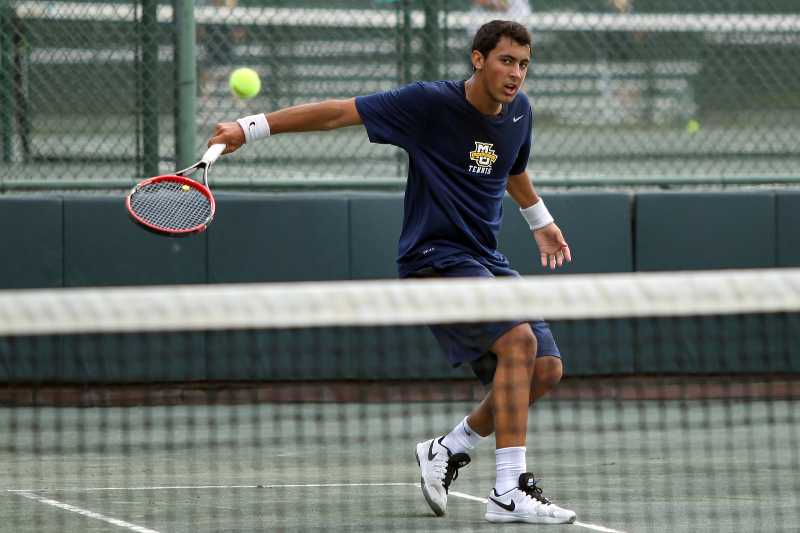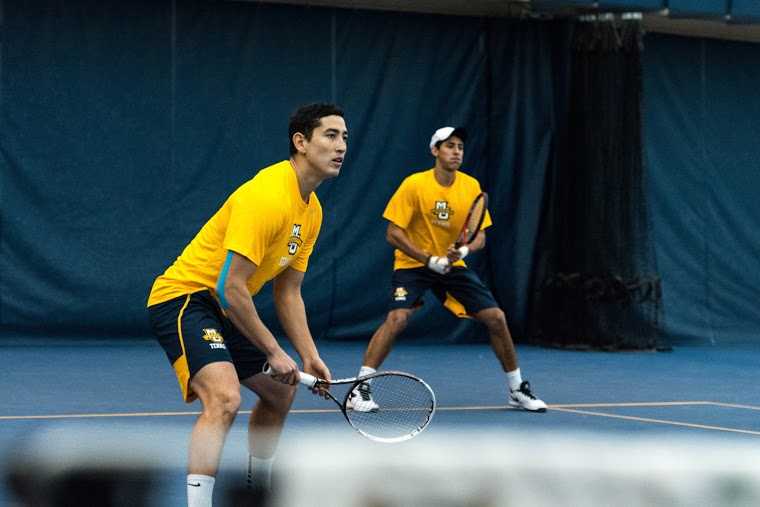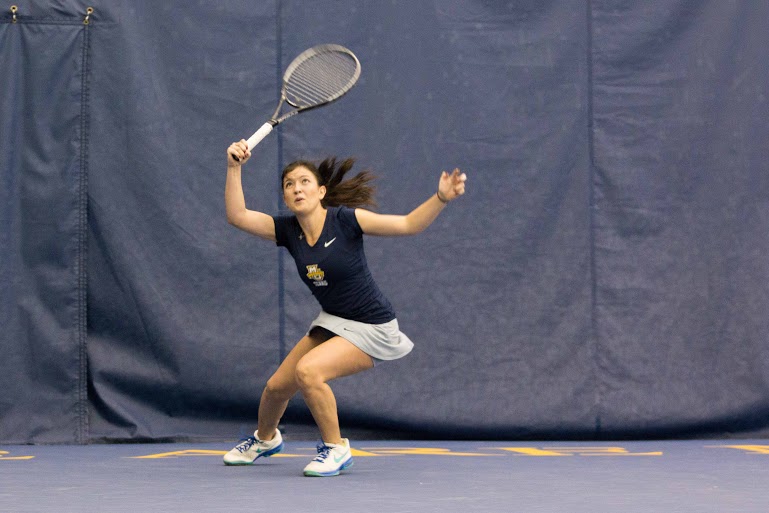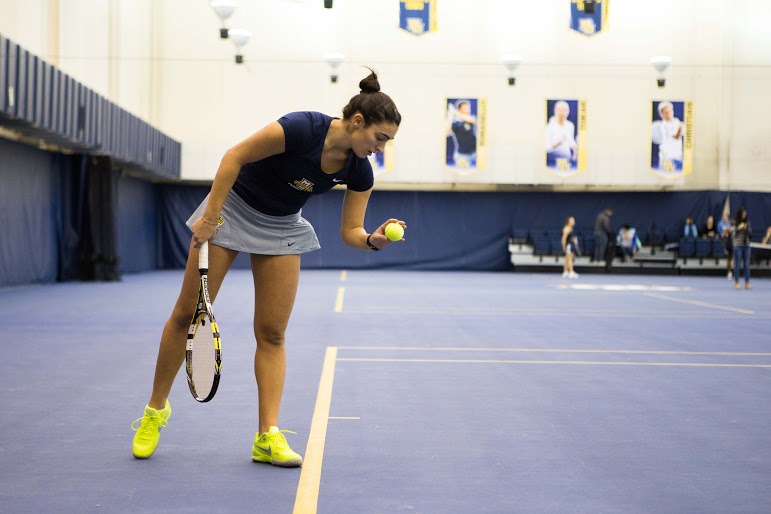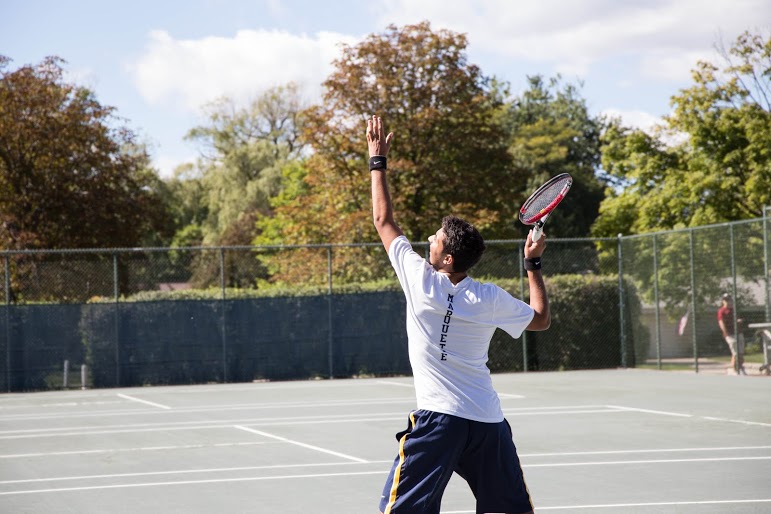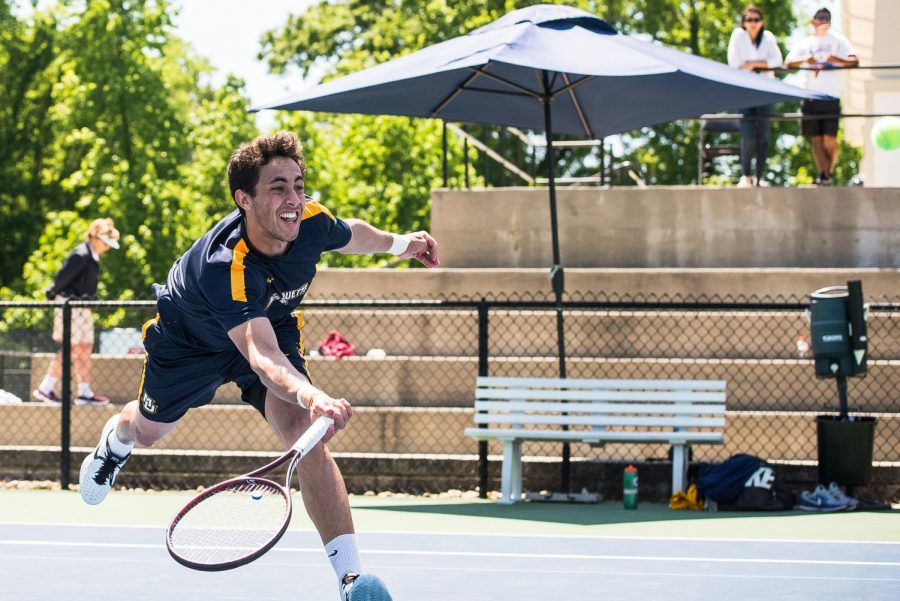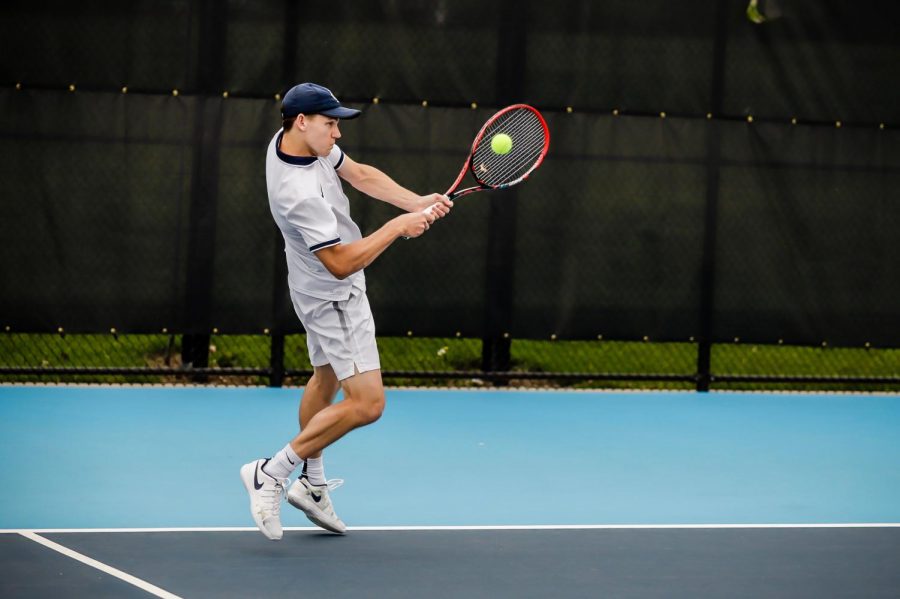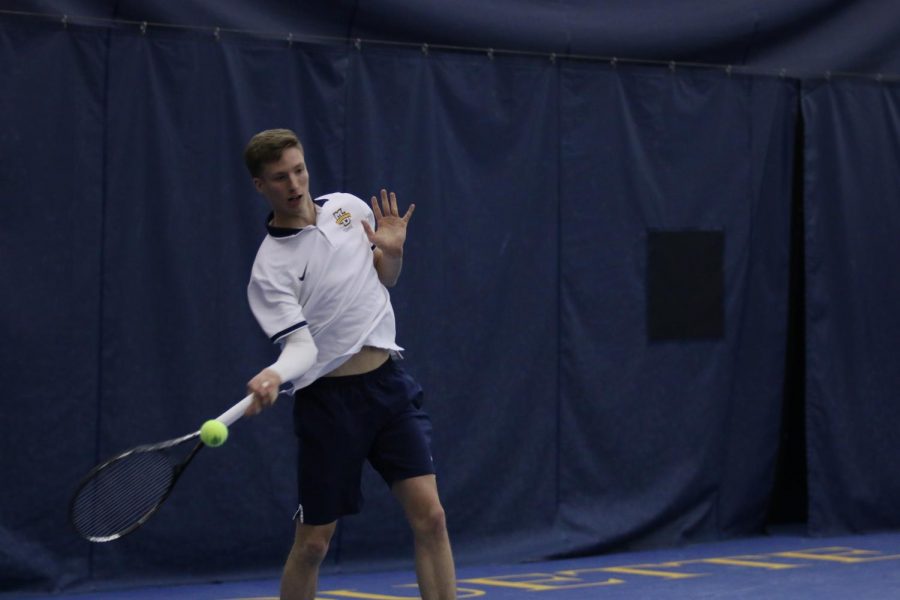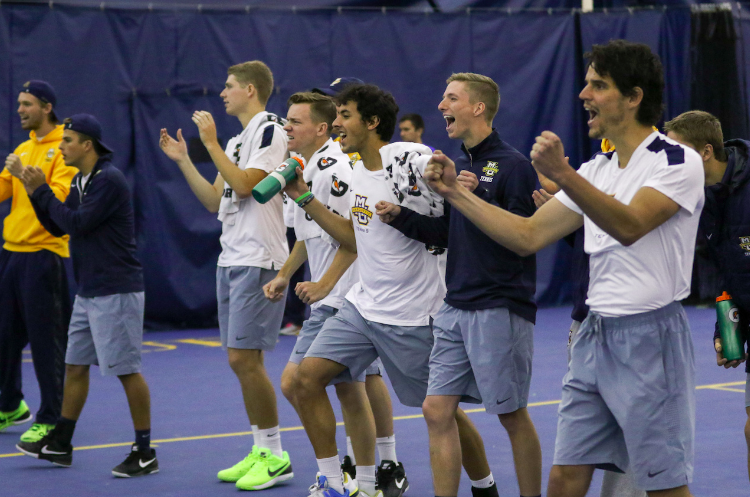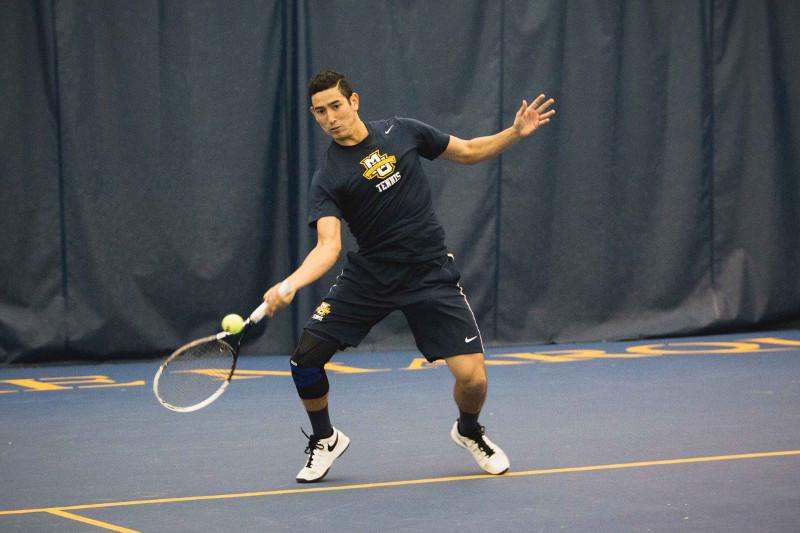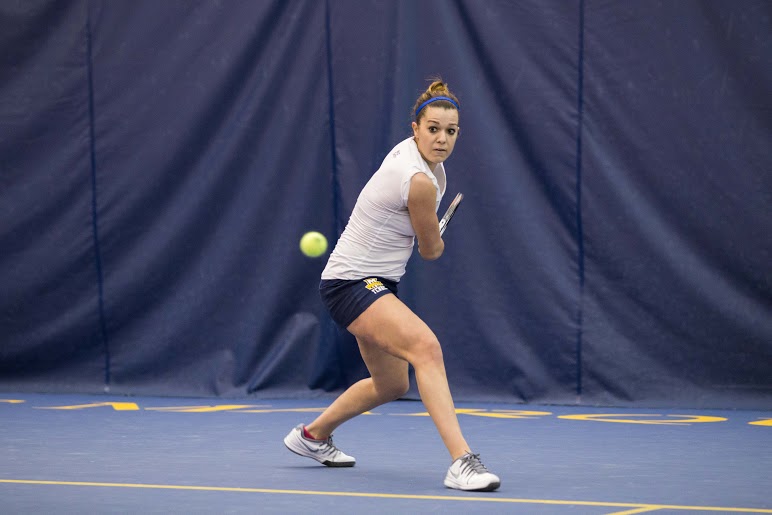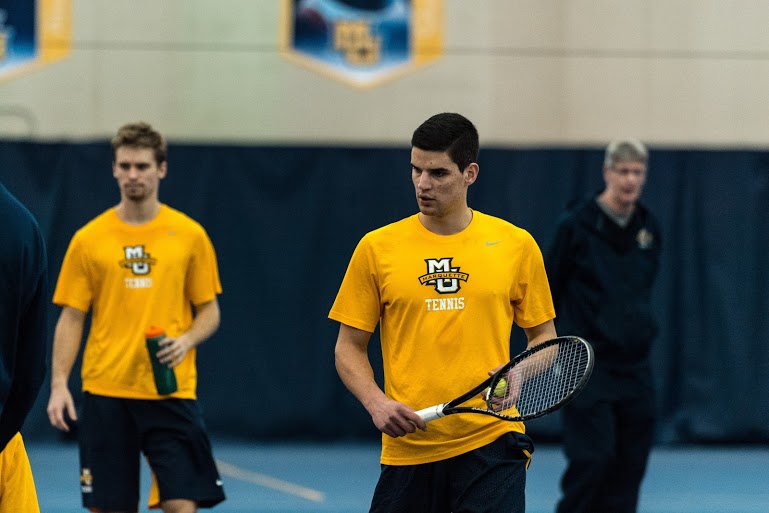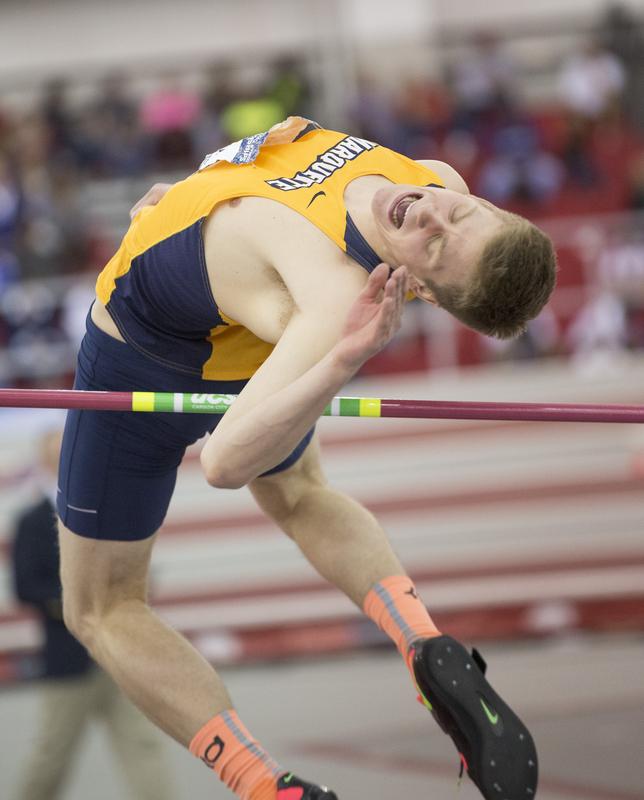Where is the best place to eat on Marquette’s campus?
For freshman Silvia Ambrosio, the answer is Cafe Italiano at Schroeder Hall. The cuisine served there gives Ambrosio at least slight nostalgia of her mother’s Italian home cooking.
“The food was a huge change for me,” Ambrosio said. Of Italian descent, she was raised in Frankfurt, Germany, and is still adjusting to life in the United States.
Ambrosio is not the only one on the team who has made an international transition. Four of the eight players on the women’s roster are European from Spain, Germany, Belgium and Ukraine. On the men’s team, five of the eight are internationals – from Israel, Canada, Spain, Mexico and Brazil.
In 2013-14, 32.3 percent of Division I men’s tennis players and 30.4 percent of women’s tennis players were international, which are the highest percentages in NCAA Division I athletics.
“It has been an evolution over time,” said Marquette men’s tennis head coach Steve Rodecap of international players coming to the United States to play collegiate tennis. “Certainly over the last fifteen years there have been more and more (players coming over). If you look at the rosters of a lot of teams, you won’t see Americans on them. They will be one-hundred-percent international.”
In many countries abroad, tennis is one of the most popular sports, right behind soccer, while in the U.S. sports like football, basketball, baseball and hockey overshadow tennis. Because there are so many collegiate tennis programs and not enough high-level American players to fill them, teams rely on international talent to stay competitive.
Coming to the U.S. to play tennis also is highly beneficial for athletes. When it comes time to go to college, many international athletes don’t have the option to play their sport at school. Coming to the U.S. gives those players a chance to play while getting an education.
“Two years ago I was thinking about what I would like to do in college,” said men’s tennis freshman Alvaro Verdu, who comes from Elda, Spain. “I had two options: I could stay in Spain and stop playing tennis or come here and try to play tennis at the same time that I am studying. Last year I came to Marquette to visit and loved it.”
“Coming here to play college tennis is a great opportunity,” added senior Daniel Fernandez, who is from Aguascaliente, Mexico. “Being able to get this education is amazing. There is a great level of tennis in Division I. You have the best four years of your life.”
Coming to the United States on scholarship offers players the chance to get an education with financial assistance they wouldn’t necessarily get in their home country.
American players and coaches are also able to benefit from having a strong presence of internationals on the team.
“We have guys from all over the world, places I have never been before, so it gives you a new perspective on life,” said junior men’s player Nick Dykema, who is from Green Bay.
“[I have learned] how fortunate we are to be able to play our sport in college,” added senior women’s player Aleeza Kanner, who is from Phoenix.
Having international friends also has its benefits; this past summer Kanner was able to travel to Madrid to visit with some of her former teammates.
Both Verdu and Ambrosio hired agencies to help them contact college coaches in the U.S., pick the right school, and fill out the required paperwork for the NCAA. Hiring recruiters to assist in this process is a typical practice for international collegiate athletes in any sport.
Both Rodecap and women’s head coach Jody Bronson rely heavily on video and reports that the agencies give them because they rarely get to see a potential international recruit in person.
“We don’t get to see the international players a lot,” Bronson said. “You can’t fly to every country because it would be too expensive… you just have to pick and choose what you are going to do.”
Once the connections are made and the eligibility paperwork is filed, the players can begin the adjustment to a completely different lifestyle, including drastic academic changes.
“It is a big commitment to be a student-athlete,” says Fernandez. “You have to have great time management. You have very few hours to do what you want.”
“I had more free time in Germany and I didn’t know how to manage my time in the beginning (here),” adds Ambrosio. “I was like ‘I should study, but I have practice. What should I do?’”
While having to make living adjustments, players also have to adjust to a different style of tennis. Indoor tennis is played much less in other countries than it is in the United States. In terms of gameplay, Verdu has noticed that in Spain players will use more top spin to work points, while Americans are more likely to use a serve and volley strategy that results in games being decided with less shots.
Ambrosio, Fernandez and Verdu all agree that the food has been the biggest difference in the United States. “I would like to experience some Spanish food here in the States,” Verdu said with a smile, putting air quotation marks around “Spanish food.”
“They try to be too authentic here,” Fernandez said about Mexican restaurants in the area. “I have never had anything that is comparable.”
In addition to all the other changes, there is the usual homesickness that most freshmen experience at some point, but the support of elder international teammates makes the transition easier.
“Paula (Tormos Sanchez) said that it was difficult at the beginning, but you get used to it and you get to know new people who become your second family,” said Ambrosio.
As Verdu reflects on his play so far in his first season with Marquette, he was pleased with the way he played in the Milwaukee Tennis Classic, but feels he still has adjustments to make.
“I just came from Spain, the other part of the world, so it’s okay,” he said with a smile and a laugh. “I will have bad moments, for sure, where I will be down, but if I keep on working and having fun, I will keep loving it.”

